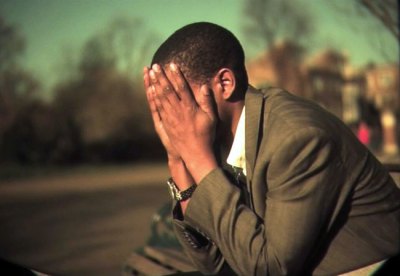It was always going to be important to wait until the dust settled around Labour’s second leadership election to see what was going to happen next. Now, settled it has and things are a little clearer, but only a little. What remains still looks like a panorama tremendously unhelpful to Labour moderates.
First, we might review the external changes that have happened since September. As the Independent observed yesterday, of Britain, the US, France, Italy and Germany there remains only one leader from just a few months ago, and neither is Merkel safe. Populist right-wingers have either won or are waiting at the gates everywhere. There are still all the signs of a tidal wave of political realignment across the Western world, and it would be reasonable to assume that Labour needs to either decide how to position itself or risk being swept away
Bizarrely, this is good news for Corbyn: it shows that the appetite for easy answers among the public has not diminished, and among the relatively tiny selectorate which has kept him in post, too, there seems little chance of minds changing before 2020.
The final piece of the puzzle is the information we now have about Brexit. A recent survey showed that Britons currently feel more strongly about their Remain or Leave positions than they do about political parties. This means that Labour’s positioning on Brexit is now crucial to its survival: the fudge that it lived with through the referendum campaign is no longer tenable.
So, what are these options?
One. To unequivocally position itself as a pro-Europe party. It would retain its moderate core and hopefully eat into the Lib Dem’s position before they have a chance to regroup, and perhaps one day return in Scotland, where such views are more palatable to the electorate. It might also pick off some one-nation Tories. This is not to say it is a great option: the likelihood is that it would still remain a rump party for many years, possibly never again attaining power. In a first-past-the-post system, rump parties live a perennially frustrating life. It would also lose a swathe of working-class voters to UKIP, especially in the North. But it would likely survive.
Two. To unequivocally position itself as an anti-Europe party. This would lose its moderates and complete its journey to the hard-left. With no centrist ballast, policy would shift further leftwards accordingly, and further away from the mainstream vote. But it is not clear that it would not still lose working-class voters to UKIP, utterly turned off as they are by the London-based, metropolitan leftism of the Corbynites. It would be also competing against the Tories on pro-Brexit ground where they are much stronger. In short, this option would be likely to be suicidal. A membership with a dwindling band of moderates and a wafer-thin slice of potential voters.
Three. Wait and see. Try and get through the next four years as a squabbling rabble, continuing to fudge the burning issue of the day, and see what tomorrow brings. Now, this strategy might be viable in normal times – many parties have lived to fight another day by treading water – but these are not normal times.
The considerable risk now is that there will be nothing left of the moderate centre by 2020 and the remaining Labour MPs will have been tainted with the Corbyn electoral poison. The patent indecision of such a Labour Party would irritate voters on either side of the Brexit divide. Furthermore, the political whirlwind we are currently experiencing will have moved on by then and Labour could easily be left standing unchanged, defenceless, like a dinosaur in the wake of a comet.
The only hope in this scenario is that the hard left burns itself out in the meantime – e.g. that the current Momentum infighting results in meltdown among the Corbynistas, or that chief Corbyn backer Len McCluskey fails to get re-elected as Unite’s General Secretary – but these are long shots. And waiting hopefully for someone else to make the next move is rarely a good survival strategy, especially when things are moving so rapidly.
In a nutshell, with all of the above options the Armageddon scenario is the following: a three-way squeeze between the Lib Dems, UKIP and the SNP, all of whom have coherent platforms and are therefore dangerous to Labour, which currently does not. Labour is facing not a setback, but decimation in the 2020 general election. It is not a time for patient reflection, but action.
There is still a fourth option: a Labour split. Although hugely unpalatable on the face of it, and with a dubious historical record, it may yet turn out to be the only way to preserve a moderate opposition in a way that can effectively challenge the Tories.
Because the other three are not winning options, merely different degrees of losing.
This post first published at Labour Uncut
